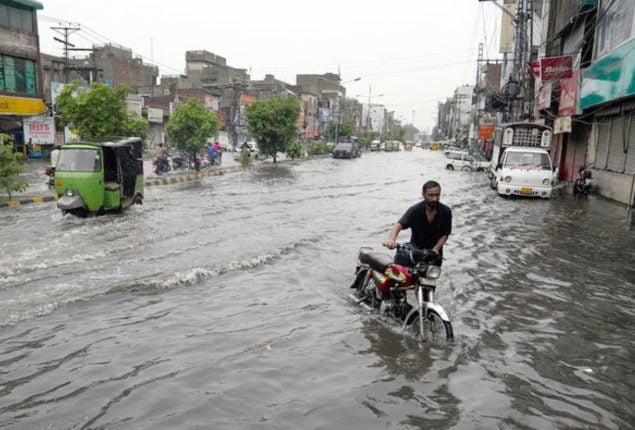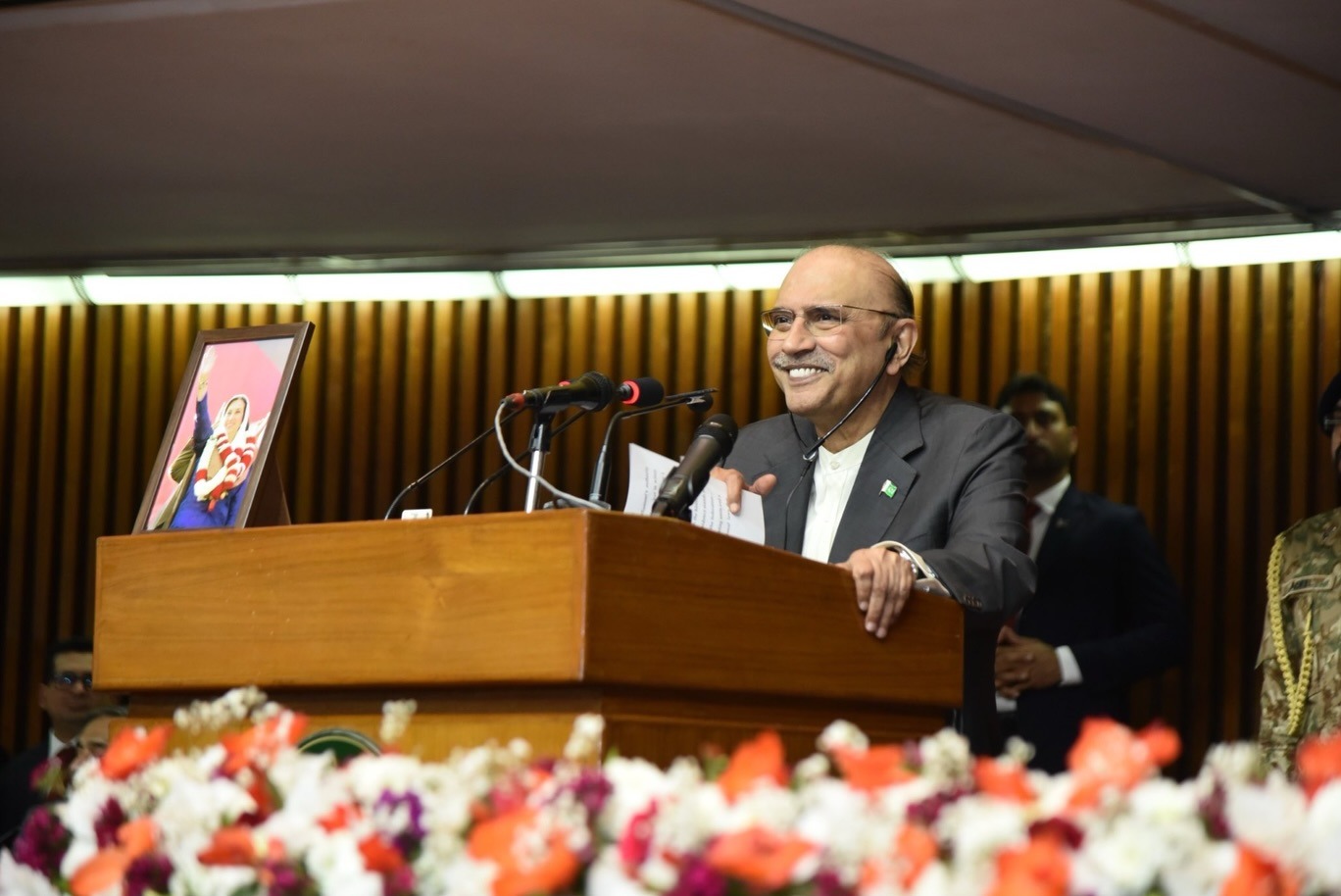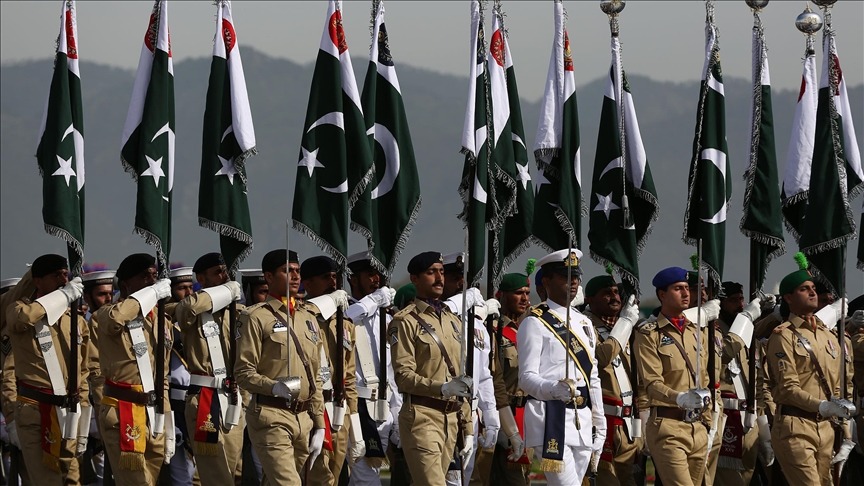Due to severe monsoon‑related weather conditions, a one-day public holiday has been declared in Rawalpindi on Thursday, July 17, 2025. The notification, issued by Deputy Commissioner Dr. Hassan Waqar Cheema, urged residents to remain indoors and warned against non-essential outings as efforts to manage the emergency continued.
Deputy Commissioner Issues Urgent Alert
In his official notification, Dr. Cheema emphasized that the holiday was declared to prioritize public safety amid forecasts of torrential rainfall. He stated that all district services, including education and non-essential government departments, would remain suspended for the day. Citizens were strongly advised to stay home, avoid venturing outside unless absolutely necessary, and adhere to instructions issued by rescue teams deployed throughout the city .
This directive came after alarming updates from the district administration: more than 200 mm of rainfall had already been recorded, with meteorological predictions pointing to additional downpours in the coming hours. Such extreme weather placed a heightened risk on infrastructure and public well-being, prompting the call for a complete halt of daily life in Rawalpindi .
Rescue Teams Active Around the Clock
Local authorities confirmed that emergency teams and essential personnel were working through the night to manage flooding, clear debris, restore power lines, and remove hazardous obstructions. The area’s drainage system was under immense pressure, and swift action was deemed necessary to mitigate local flooding and prevent harm to residents.
Dr. Cheema’s advisory reinforced that, to aid these teams in performing their duties effectively, the public must avoid traffic congestion and unnecessary presence on roads. This would allow emergency vehicles clear passage and help expedite critical rescue operations .
Broader Regional Impact and Prior Incidents
The situation in Rawalpindi echoes a wider pattern across Punjab and other regions of Pakistan, where heavy monsoon rains have wreaked havoc. Just two days earlier, in Faisalabad, collapsing rooftops claimed the lives of at least 11 individuals and injured more than 20 others. Among those killed were a young couple, a mother with her daughter, two brothers, and a mother‑son duo .
A particularly heartbreaking incident occurred at J‑Block of Allama Iqbal Colony, where the weakened roof of a second‑story room collapsed. Two brothers—17‑year‑old Muhammad and 11‑year‑old Musab Hussain—lost their lives, while their father Khalid, mother Farhana, and 12‑year‑old sister Shanza survived with injuries .
These tragedies underscore the growing vulnerability of residential structures, especially older buildings with weak roofs. Combined with intense rainfall, the risk of structural failure—and subsequent loss of life—is significantly elevated.
Government Response and Preparedness for Monsoon
As floodwaters rise and the infrastructure strain deepens due to Monsoon heavy raining, the provincial government, meteorological departments, and civic agencies are intensifying their emergency protocols. In Rawalpindi, the Deputy Commissioner’s office is coordinating with the meteorological department to monitor weather trends closely. Communication lines—via SMS alerts, radio, and digital platforms—have been activated to inform citizens instantly about changing conditions and any additional warnings or instructions.
The temporary closure of offices, schools, and non‑essential services forms a core part of Monsoon preparedness. By reducing public movement and minimizing vehicular traffic, authorities aim to lower the risk of road accidents, traffic jams, and additional strain on rescue operations.
Recommendations for Residents
In light of the Monsoon situation, experts advise everyone in Rawalpindi to:
-
Stay indoors and avoid unnecessary travel.
-
Ensure emergency supplies are ready at home—flashlights, bottled water, blankets, and basic medication.
-
Safeguard electrical appliances and disconnect them from power outlets to reduce the risk from possible power surges or flooding.
-
Stay tuned to local weather alerts and Civil Defence notifications.
-
Report any roof damage, waterlogging, or structural instability via designated helplines.
Community Solidarity and Resilience
Despite the Monsoon looming threat, community resilience shines through. Citizens and local volunteers are rallying to assist vulnerable individuals, support rescue operations, and provide food, clothing, and shelter where needed. Religious institutions, non‑governmental organizations, and local charities are also mobilizing to distribute aid and offer shelter.
Looking Ahead
Monsoon season in Pakistan is known for its unpredictability; erratic weather patterns can quickly transform mild rainfall into prolonged deluge. Experts recommend reviewing and reinforcing infrastructure—particularly drainage systems, aging buildings, and roads—to prevent future casualties and disruptions.
Today’s declaration of a public holiday in Rawalpindi, while disruptive, underlines the administration’s proactive stance on disaster management. By temporarily halting daily life, authorities hope to reduce risks and give rescue teams the breathing space necessary to act swiftly and effectively.



